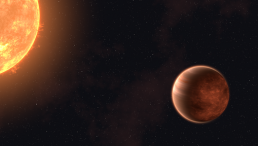Have you enjoyed detective shows? You may have noticed how detectives analyze evidence to identify suspects, using logical reasoning. In science, we also use logical reasoning to explain natural phenomena. So, what's the contrast between deductive and inductive reasoning? Read on to discover the key differences.
(Photo : Unsplash/Andres Siimon)
Scientists Use Logical Reasoning
Scientists utilize careful planning, creative thought, and logical deduction to explore and understand natural occurrences. The scientific method encompasses several steps, including observation, problem identification, hypothesis formulation, experimental testing, and concluding.
These findings are then communicated within the scientific community, with hypotheses that withstand testing potentially evolving into theories. Logical reasoning plays a crucial role throughout this process, guiding scientists in their quest for knowledge and understanding.
Through rigorous experimentation and analysis, scientists aim to uncover the underlying mechanisms behind natural phenomena. As data is collected and theories refined, the scientific community collectively advances its understanding of the world.
Logical reasoning serves as the backbone of scientific inquiry, facilitating the formulation of hypotheses, interpretation of results, and refinement of theories over time.
READ ALSO: How To Tell Time Without Using Clocks
Deductive Vs. Inductive Reasoning
There are two different types of logical reasoning, namely deductive and inductive reasoning.
Deductive Reasoning
Deductive reasoning, or deduction, relies on general principles to derive specific conclusions. When the premise is true-such as "all spiders have eight legs"-deductive reasoning leads to valid conclusions. For instance, because tarantulas belong to the spider family, deducing that they also possess eight legs is logical.
In the scientific method, deduction is crucial for testing hypotheses and theories, which make predictions based on established principles. Sylvia Wassertheil-Smoller, a researcher at Albert Einstein College of Medicine, explains that scientists move from theories to observations, building upon existing knowledge to formulate hypotheses and theories, which are then subjected to empirical testing.
Deductive reasoning typically follows a structured format, often employing syllogisms where two premises-major and minor-lead to a logical conclusion.
However, the reliability of deductive conclusions hinges on the accuracy of the premises; if the premises are false, the deductions will be inaccurate, as demonstrated by examples like "All bald men are grandfathers. Harold is bald. Therefore, Harold is a grandfather."
Inductive Reasoning
Inductive reasoning, also known as inductive logic or inference, extrapolates general conclusions from specific observations. Unlike deductive reasoning, which starts from a general premise to arrive at a specific conclusion, inductive reasoning operates in reverse, building hypotheses from observed patterns.
In science, researchers employ both inductive and deductive reasoning to gradually approach verifiable truths. Inductive reasoning involves making numerous observations, identifying patterns, and formulating generalizations or theories.
However, the reliability of conclusions drawn through inductive reasoning depends on the comprehensiveness of the observations; for example, inferring that all coins in a bag are pennies based on a few observations may not hold if additional coins turn out to be different denominations.
Despite its potential limitations, inductive reasoning plays a crucial role in the scientific method by generating hypotheses and theories. Scientists then use deductive reasoning to apply these theories to specific contexts, ensuring a systematic approach to scientific inquiry.
RELATED ARTICLE: Basic Logic Help Monkeys in Decision Making, According to Study
Check out more news and information on Human Behavior in Science Times.














